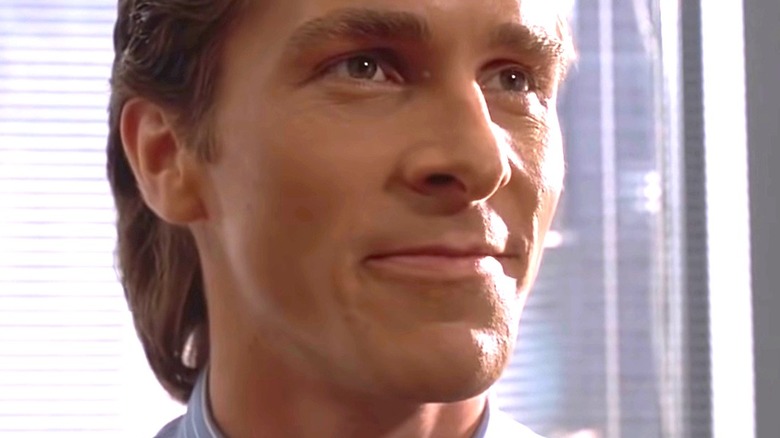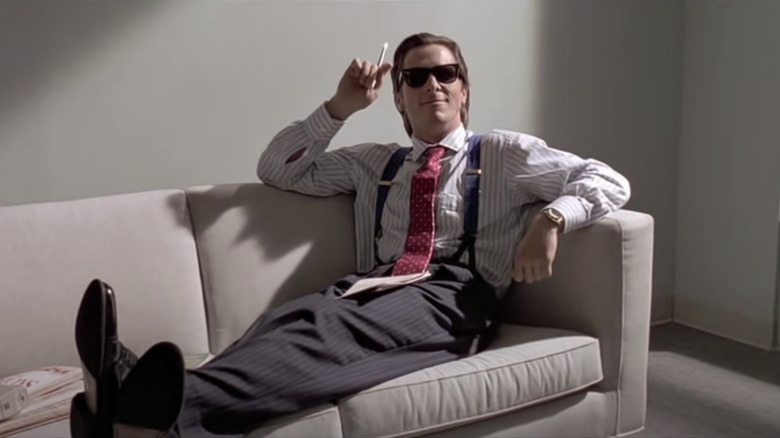What American Psycho Had To Change To Remove Its NC-17 Rating
It should come as little surprise that 2000's "American Psycho" had trouble with the Motion Picture Association of America (MPAA), considering its source material. Bret Easton Ellis' 1991 novel was the 53rd most frequently challenged book from 1990-1999 (per the American Library Association). The author also faced backlash when originally turning in the manuscript, and he was dropped by his first publisher, Simon & Schuster (via Complex).
It is a story that is, without question, dark material. Both the film and the novel dive directly into the thoughts of Patrick Bateman, a New York banking executive utterly bored with the economic rat race. His real kicks come from appreciating pop music and slaughtering people.
The movie adaptation of Ellis' book has, like its source material, found a cult following over the years with a barely-connected sequel, "American Psycho II: All American Girl," put out in 2002 to milk off the success of the first. Ellis mostly dismissed the sequel, but, hey, it's got Mila Kunis and William Shatner in it, so that's...something (per IGN).
When director Mary Harron submitted her film adaptation of "American Psycho" before its 2000 release, she had to make an odd cut to move the film's rating from an NC-17 to R. While NC-17 may sound appropriately edgy, it was only a few years earlier that "Showgirls" had been released uncut, and it paid the price at the box office (via Box Office Mojo).
Mary Harron had to make cuts to a prostitute scene to get an R rating
When initially turned over to the MPAA, "American Psycho" was slapped with an NC-17 rating, which the studio appealed and lost. This left Harron no choice but to scale back a scene involving Bateman (Christian Bale) sleeping with two prostitutes. They were cool with Jared Leto being hacked apart with an ax, though (per The Guardian).
Mark Urman, then co-president of distributor Lions Gate Films, said they argued the threesome scene was not titillating and was modest in the context of the movie, but his arguments fell on deaf ears.
"We tried to emphasize that the scene is completely defensible within the context of the movie, and that it is not just there to be titillating, but the MPAA didn't really get it," he said in 2000 ahead of the film's release (via the New York Post).
The scene itself is relatively mild. No genitalia is shown, making the MPAA's objection even odder because the following scene in the movie includes Bateman literally dropping a chainsaw down a flight of stairs to kill a woman.
In the end, an unrated version of "American Psycho" ended up being released on home video anyway in 2005, right as Bale took his career to new heights as Bruce Wayne/Batman in Christopher Nolan's "Batman Begins" (per Sun Sentinel).

